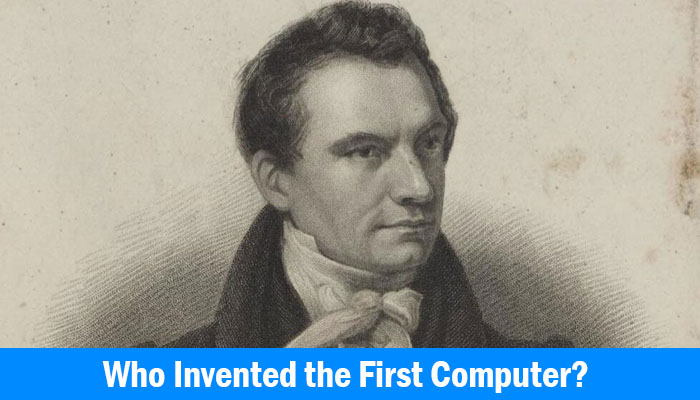Who Invented the First Computer?
The question of “who invented the first computer” is a difficult one to answer. In fact, it’s really more complicated than that. The first modern-day computer was created by Charles Babbage, an English polymath, and mechanical engineer. Rather than just creating a simple calculator, he developed the concept of a digital programmable machine. In this article, we’ll look at Babbage’s role in the invention of the computer.
Charles Babbage was a polymath, with a background in mathematics and mechanical engineering. His most notable machines included the Difference Engine and Analytical Engine, which were powered by steam and contained a predecessor to the CPU and memory. In contrast, the Difference Engine was a mechanical calculator that required a human operator to input information. The first programmable mechanical computer was Charles Babbage’s Analytical Engine, which was a complete computer powered by a steam engine.
The first computer was a mechanical calculator created by Charles Babbage. The Z1 model had 12,500 hand-cut sheet metal parts and was assembled in the living room of his parents. The Analytical Engine was a binary 22-bit floating-point calculator that used paper tape for programming. Despite its slowness, the computer quickly became a popular tool in government offices. As the population of the U.S. increased, the government needed a faster way to tabulate the results of the census. In the 1880s, the Difference Engine was already obsolete and the Analytical Engine served as a basis for the Z2 programmable electronic digital computer.
While the development of computers has always been influenced by technological advances, the Second World War also played a huge role in their development. The British army introduced the classified car known as Kollos, which helped them crack German messages. This was the first fully electrical programmable computer, but it wasn’t widely known until the 1970s. The invention gained widespread interest among scientists and the Ministry of Defense, which helped it become a successful machine.
The first computer was built in a British laboratory by Charles Babbage. Its basic architecture was inspired by the Difference Engine, which was a mechanical calculator. Then, the Analytical Engine was designed and patented. The Analytical Engine eventually became the first computer and became a foundation for the modern digital world. Its development was halted during the Second World War. However, today, most computers are still built on the same basic framework.
The first computer was designed by a team led by Howard Exxon. The computer’s design was commissioned by IBM, which provided four engineers. The “Mark 1” was launched on August 7, 1944, at Harvard University. It was a four-and-a-half-ton mechanical machine. Using a mechanical mechanism is what enables it to perform calculations. The Analytical Engine is the first mechanical computer. Its predecessors were more complicated and had more complex parts.
The first computer was not a simple mechanical device. In fact, it was a combination of several earlier machines. The abacus, which is an ancient Chinese tool for counting, was the first mechanical calculator. In 1742, the abacus is still in use today. Although the abacus had its origins in ancient China, the abacus was first developed in the early 1800s. And later, the abacus was a complex mathematical machine.
The first computer was an early analog device. It was inspired by earlier machines. The abacus was a mechanical calculator, and its predecessor was the abacus. It used a wheel to calculate multiplication tables. The abacus was later replaced by the abacus. In 1872, the abacus had a small keyboard. In fact, the machine was called a calculator.
The abacus was a mathematically advanced machine that uses 300 vacuum tubes to perform digital computation. The ABC was the first programmable computer, and it used binary and Boolean logic. It was not a programmable machine, and it never had a CPU. It was a prototype of today’s computers. Abacus, a mechanical machine, is still the earliest form of a computer.
